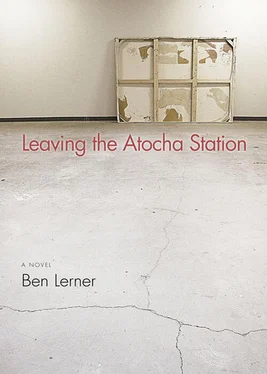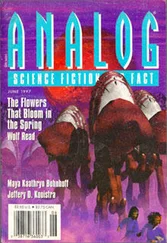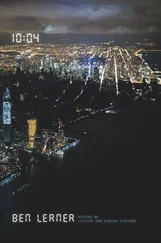Arturo hesitated and I imagined he had expected my performance to be more like Tomás’s than it was, had undertaken the translation with a much more dramatic performance in mind, and now he was trying to figure out if he needed to read the translation in the manner in which I’d read the original or if he should deliver it as he had envisioned it prior to my reading; I was glad to see him struggle. Then he began to read the translation in what he must have thought was the midpoint between my style and Tomás’s, gripping the podium like the latter, but modeling my detachment, which had the strange and appropriate effect of making his voice sound dubbed.
At first I heard only so many Spanish words, but nothing I could recognize as my own; after all, there was nothing particularly original about my original poems, comprised as they were of mistranslations intermixed with repurposed fragments from deleted e — mails. But as the poem went on I slowly began to recognize something like my voice, if that’s the word, a recognition made all the more strange in that I’d never recognized my voice before. Something in the arrangement of the lines, not the words themselves or what they denoted, indicated a ghostly presence behind the Spanish, and that presence was my own, or maybe it was my absence; it was like walking into a room where I was sure I’d never been, but seeing in the furniture or roaches in the ashtray or the coffee cup on the window ledge beside the shower signs that I had only recently left. Not that I’d ever owned that particular couch or cup, but that the specific disposition of those objects, the way they had been lived with, required or implied me; not that I was suffering from amnesia or déjà vu, but that I was both in that room and outside of it, maybe in the park, and not just in the park, but also in innumerable other possible rooms and parks at once. Any contingent object, couch or cup, “orange” or “naranja,” could form the constellation that I was, could form it without me, but that’s not really right; it was like seeing myself looking down at myself looking up.
When Arturo finished reading there was a long pause followed by what I experienced as unusually loud applause, and Arturo gestured toward me, redirecting that applause, and then said something about Tomás into the microphone, the applause thickening to include him before it gradually tapered off. People rose from their seats and either left to smoke, I guess smoking was bad for the art, or broke for the wine and tapas. Teresa approached and congratulated me and said I had done a wonderful job. Rafa embraced me, Rafa never really talked, and then I saw that María José was waiting to speak with me, American fellows in tow.
I introduced Teresa to María José and vice versa, and Teresa let fly a barrage of compliments about my writing and said something about how wonderful it was that the foundation had brought me to Madrid. While I couldn’t understand much of what she was saying, it was clear it was eloquent, that Teresa spoke not as a friend but as a self-appointed representative of Spanish Art, and that María José was impressed, if a little put off. To me María José said she had enjoyed the reading very much, she looked forward to talking with me about how my new poems related to my research about the Spanish Civil War, perhaps at one of the upcoming events where fellows would be presenting their work, and I blinked a few times and said claro. Then one of the fellows introduced herself and said she too was a poet, basically yelled it, and that she would love to have coffee sometime and talk Spanish poetry. I blinked at her as well, but, before I could say claro, Arturo was pulling me away from the group to introduce me to Tomás, who had the air of a man badly misunderstood.
We shook hands and I said I liked your reading and he thanked me but didn’t say anything back, I guess because he didn’t like my poetry and because Tomás couldn’t lie for the sake of politeness when it came to the most sacrosanct of arts. I was surprised how furious I became and how fast, but I didn’t say anything; I just smiled slightly in a way intended to communicate that my own compliment had been mere graciousness and that I in fact believed his writing constituted a new low for his or any language, his or any art.
When I felt my face had made its point, I left him without saying excuse me, walked out of the gallery, and stood a few feet apart from the other smokers and lit my own cigarette, impervious to the cold. I sensed that the other smokers were whispering about me in respectfully hushed tones, and while I knew this was less because of any particular response they’d had to my reading than because I had been presented to them as a significant foreign writer, it nevertheless felt good. Eventually one of the group approached me and introduced himself as Abel. We shook hands and he said he enjoyed the reading, then explained that his photographs were hanging in the gallery and I said, although I hadn’t really seen them, that they were excellent. Perhaps because I paid him this compliment as if my knowledge of photography were considerable, he seemed eager to demonstrate some understanding of poetry, and he began to compare my writing with a Spanish writer I didn’t know. As he grew increasingly animated another smoker joined us, and after listening for a while he began to disagree with Abel, lightly at first, then with increasing intensity. The more heated the exchange, the more rapid the speech, and the less I understood; in the afterglow of what increasingly felt like my triumphant reading, however, I had the confidence to conduct or project a translation of pure will, and I came to believe I could follow the back and forth, which had the arc and feel of debates I’d heard before.
The poet to whom Abel likened me was a reactionary, the second smoker seemed to say, and his formal conservatism was the issue of his right-wing sympathies; my writing recalled him only in its sonority, but my formal openness signaled a supple capacity to take the measure of contemporary experience quite distinct from so-and-so’s fascistic longing for some lost social unity. My work, said the second smoker, was much more reminiscent of another poet, whose name I’d never heard, who fled Franco and died in exile, a poet whose capacity to dwell among contradictions without any violent will to resolution formally modeled utopian possibility. This Abel dismissed with a wave of his cigarette as a simplistic, knee-jerk association of formal experimentation with left-wing politics, when in fact the leading Modernist innovators were themselves fascists or fascist sympathizers, and in the context of U.S. imperialism, I thought he argued, reestablishing forms of sufficient complexity and permanence to function as alternatives to the slick, disposable surfaces of commodity culture was the pressing task of poetry.
One cannot overcome the commodification of language by fleeing into an imagined past, the second smoker might have countered, which is the signature cultural fantasy of fascism, but rather one must seek out new forms that can figure future possibilities of language, which was what my work was somehow doing, unbeknownst to me, placing recycled archival materials in provocative juxtaposition with contemporary speech. We were all in one group now, the smokers, many of whom were lighting second or third cigarettes, and it was clear that I was expected to weigh in. I said or tried to say that the tension between the two positions, their division, was perhaps itself the truth, a claim I could make no matter what the positions were, and I had the sense the smokers found this comment penetrating.
I lit another cigarette to help my aperçu sink in, and in the ensuing silence I tried hard to imagine my poems’ relation to Franco’s mass graves, how my poems could be said meaningfully to bear on the deliberate and systematic destruction of a people or a planet, the abolition of classes, or in any sense constitute a significant political intervention. I tried hard to imagine my poems or any poems as machines that could make things happen, changing the government or the economy or even their language, the body or its sensorium, but I could not imagine this, could not even imagine imagining it. And yet when I imagined the total victory of those other things over poetry, when I imagined, with a sinking feeling, a world without even the terrible excuses for poems that kept faith with the virtual possibilities of the medium, without the sort of absurd ritual I’d participated in that evening, then I intuited an inestimable loss, a loss not of artworks but of art, and therefore infinite, the total triumph of the actual, and I realized that, in such a world, I would swallow a bottle of white pills.
Читать дальше












